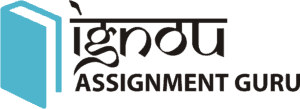Effective Time Management Tips for IGNOU Exam Success
Are you a student enrolled in the Indira Gandhi National Open University (IGNOU)? Do you often find yourself struggling to manage your time effectively while preparing for your exams? If so, you’re not alone. Many students face challenges when it comes to balancing their study time, assignments, and other responsibilities. However, with proper time management strategies, you can maximize your productivity and achieve success in your IGNOU exams. In this article, we will discuss some effective time management tips specifically tailored to help you excel in your IGNOU exams.
Introduction
Managing time effectively is crucial for any student, especially those pursuing distance education like IGNOU. With a diverse range of subjects and self-paced learning, effective time management becomes even more critical. By implementing the strategies outlined in this article, you can make the most of your study time, increase your productivity, and enhance your chances of success in IGNOU exams.
Understanding the Importance of Time Management for IGNOU Exam Success
Before diving into the tips, it’s essential to understand why time management is crucial for IGNOU exam success. Efficient time management allows you to allocate your study time wisely, prioritize tasks, and ensure you cover all the necessary topics. It helps you avoid last-minute cramming, reduce stress, and retain information effectively. By effectively managing your time, you can achieve a better work-life balance, stay motivated, and make significant progress in your IGNOU studies.
Setting Clear Goals and Priorities
One of the first steps towards effective time management is setting clear goals and priorities. Start by defining what you want to achieve in your IGNOU exams. Break down your goals into smaller, manageable targets for each subject or module. Prioritize your tasks based on deadlines, importance, and difficulty level. Having a clear roadmap of your goals will help you stay focused and motivated throughout your study journey.
Creating a Study Schedule
A study schedule acts as a roadmap for your daily or weekly study routine. It helps you allocate specific time slots for each subject, assignment, or revision session. When creating a study schedule, consider your energy levels and peak concentration periods. Divide your study time into shorter, focused sessions to avoid burnout. Ensure you allocate sufficient time for each subject and balance your workload accordingly.
Breaking Down Tasks into Manageable Chunks
Studying for IGNOU exams can sometimes feel overwhelming due to the extensive syllabus. To tackle this, break down your study tasks into smaller, manageable chunks. Instead of trying to cover an entire subject in one sitting, focus on specific topics or chapters. This approach allows for better comprehension and retention of information. Remember to assign realistic timeframes to each task to stay on track.
Avoiding Procrastination
Procrastination is the enemy of effective time management. It can derail your study plans and lead to unnecessary stress. To overcome procrastination, try the “5-minute rule.” Start a task for just five minutes, and you’ll often find yourself motivated to continue.
Eliminate distractions, such as turning off notifications on your phone or computer, and find a quiet study environment. Break down larger tasks into smaller, more manageable parts, and tackle them one at a time. By taking proactive steps to combat procrastination, you can make significant progress in your IGNOU exam preparation.
Minimizing Distractions
In today’s digital age, distractions are everywhere. Social media, emails, and other notifications can easily divert your attention from studying. To minimize distractions, create a dedicated study environment free from interruptions. Put your phone on silent mode or keep it in a different room while studying. Utilize website blockers or productivity apps to limit access to distracting websites or apps during your study sessions. By creating a focused and distraction-free study zone, you can optimize your concentration and make the most of your study time.
Utilizing Effective Study Techniques
Different study techniques work for different people, so it’s essential to find what works best for you. Some effective study techniques include:
Active Reading:
Engage with the material actively by highlighting key points, taking notes, and summarizing the content in your own words. This helps improve comprehension and retention.
Mind Mapping:
Visualize concepts by creating mind maps or concept maps. Connect ideas, topics, and subtopics to enhance understanding and recall.
Flashcards:
Create flashcards with important terms, definitions, or concepts. Regularly review them to reinforce your knowledge.
Practice Tests:
Take practice tests or solve previous years’ question papers to familiarize yourself with the exam format and assess your understanding.
By experimenting with different study techniques and finding what suits your learning style, you can optimize your study sessions and improve your performance in IGNOU exams.
Taking Regular Breaks
While it may seem counterintuitive, taking regular breaks is essential for maintaining productivity and focus. Continuous studying without breaks can lead to mental fatigue and decreased retention. Follow the Pomodoro Technique, which involves studying for 25 minutes and then taking a 5-minute break. After every fourth Pomodoro, take a more extended break of 15-30 minutes. Use your breaks to relax, stretch, or engage in a refreshing activity. By incorporating regular breaks into your study routine, you can recharge your mind and maintain a high level of productivity.
Developing Effective Note-taking Strategies
Good note-taking is a valuable skill that enhances understanding and retention of information. Experiment with different note-taking methods, such as the Cornell Method or the Outline Method, to find what works best for you. Focus on capturing key points, important definitions, and examples during lectures or while studying from textbooks. Color-coding, highlighting, and using visual aids like diagrams or charts can make your notes more organized and easier to review. Regularly review and revise your notes to reinforce your understanding of the subject matter.
Practicing Self-Discipline and Consistency
Self-discipline and consistency are key to effective time management. Set study goals for each day and commit to them. Avoid the temptation to procrastinate or deviate from your study schedule. Stay motivated by reminding yourself of your long-term objectives and the rewards that come with achieving them. Celebrate small milestones along the way to maintain enthusiasm and momentum. By cultivating self-discipline and being consistent with your study habits, you can make steady progress and achieve success in your IGNOU exams.
Seeking Support and Collaboration
Don’t hesitate to seek support from your fellow students, friends, or family members. Join study groups or online forums where you can discuss concepts, share resources, and clarify doubts. Collaborating with others can provide fresh perspectives and deepen your understanding of the subject matter. Additionally, seeking support from your professors or tutors can help address any challenges or confusion you may have. Remember, you don’t have to navigate your IGNOU journey alone. By seeking support and embracing collaboration, you can enhance your learning experience and improve your exam performance.
Using Technology to Enhance Productivity
Harness the power of technology to streamline your study process and boost productivity. There are several apps and tools designed specifically for students that can help you stay organized, manage tasks, create digital flashcards, and set reminders. Utilize note-taking apps or cloud-based storage platforms to keep your study materials accessible and organized across different devices. Online research tools and databases can assist you in finding relevant and reliable academic resources. However, be mindful of not getting overwhelmed by excessive screen time or falling into the trap of endless browsing. Use technology strategically to optimize your study routine and maximize efficiency.
Managing Stress and Maintaining a Work-Life Balance
Effective time management involves not only studying but also taking care of your overall well-being. Managing stress is crucial for maintaining focus and avoiding burnout. Engage in stress-relieving activities such as exercise, meditation, or hobbies that help you relax and recharge. Ensure you get sufficient sleep to rejuvenate your mind and body. Maintain a healthy work-life balance by allocating time for leisure activities, socializing, and pursuing your interests. Remember, a balanced lifestyle promotes overall productivity and contributes to your success in IGNOU exams.
Conclusion
Effective time management is the cornerstone of success in IGNOU exams. By implementing the tips discussed in this article, you can create a structured study routine, enhance productivity, and achieve your academic goals. Remember to set clear goals, create a study schedule, break down tasks, avoid procrastination, minimize distractions, utilize effective study techniques, take regular breaks, develop note-taking strategies, practice self-discipline, seek support, leverage technology, and manage stress. By balancing your study time with self-care and maintaining a healthy work-life balance, you can excel in your IGNOU exams and pave the way for a successful academic journey.
FAQs
Can I customize the study schedule according to my preferences?
Absolutely! Your study schedule should be personalized to suit your preferences and study habits. Modify the duration of study sessions, adjust subject priorities, and include breaks at times that work best for you. Customizing your study schedule will enhance your motivation and overall productivity.
Should I study the difficult subjects first?
It's a good practice to tackle difficult subjects or topics first while you're fresh and have higher concentration levels. By studying challenging subjects early in your study session, you can approach them with a clear mind and allocate sufficient time for understanding and practice.
How can I stay motivated while following the study schedule?
Staying motivated during your exam preparation can be challenging. To maintain motivation, set achievable goals, reward yourself for meeting milestones, and visualize your success. Surround yourself with a supportive study group or seek accountability from a study partner. Additionally, take regular breaks, engage in activities you enjoy, and remind yourself of the long-term benefits of your hard work.
Is it necessary to stick strictly to the study schedule?
While it's important to maintain discipline and adhere to your study schedule as much as possible, occasional adjustments are normal. Life events or unforeseen circumstances may require modifications to your schedule. The key is to strike a balance between following your schedule and being adaptable when needed. Flexibility allows for a more sustainable and effective study routine.





